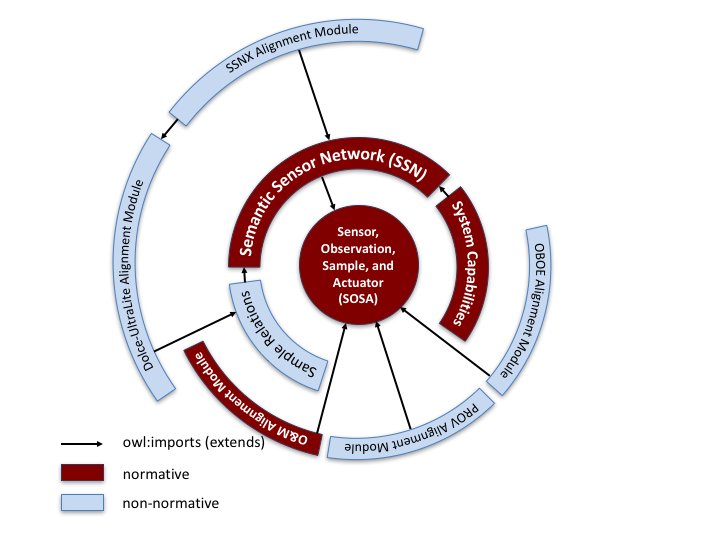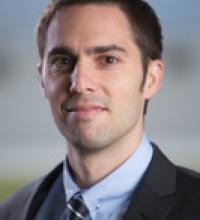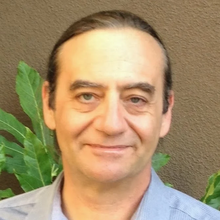
Rapid growth in the Internet of Things (IoT) means that connected sensors and actuators will be inundating the Web infrastructure with data. Semantics is increasingly seen as a key enabler for integration of sensor data and the broader Web ecosystem. The W3C and the Open Geospatial Consortium standardisation bodies have taken a second look at the Semantic Sensor Network ontology and have published a new standard ontology for representing Sensors, Observations, Sampling, Actuation and Sensor Networks. Analytical and reasoning capabilities afforded by Semantic Web standards and technologies are considered important for developing advanced applications that go from capturing observations to recognition of events, deeper insights and actions. Furthermore, the contribution of semantics to sensing and actuation patterns is currently being explored. Major industries including manufacturing, transport and logistics, personal and public health, smart cities and smart energy, crisis management and many others are spanning commercial, civic, and scientific operations that involve sensors, web, services and semantics. This workshop will continue the activity started within ISWC in 2006, and complemented by special tracks at ESWC since 2010. This 2018 edition benefits from renewed energy arising from the October 2017 W3C recommendation and OGC standard and, more importantly, increases significance due to the growth of IoT-enabled applications.

The proceedings of the Workshop are online at: http://ceur-ws.org/Vol-2213/
The SSN workshop is a full day event that revives and strengthens the community around the ontological representation of sensor and actuation data and welcomes researchers from related communities. It is highly interactive, so as to facilitate discussions among participants that could result in future collaborative work. Two invited talks will be given by Armin Haller and Michael Koster, and authors will present research papers in either long or short format, together with a demonstration. Demonstrations have been a successful feature of SSN in the past. Sufficient time will be dedicated to questions and answers for each paper. The session will end with a general discussion on experience with relevant ontologies and ideas for next steps.
| 9:00-9:10 | Introduction to SSN 2018 (slides) | |
| 9:10-9:40 | Keynote | Armin Haller, The Siloization of the IoT: A Guide out of the App trap (slides) |
| 9:40-10:10 | Long paper | María Poveda-Villalón, Quang-Duy Nguyen, Catherine Roussey, Christophe de Vaulx and Jean-Pierre Chanet. Ontological requirement specification for smart irrigation systems: a SOSA/SSN and SAREF comparison (paper - BibTex - slides) |
| 10:10-10:30 | Short paper | Benjamin Klotz, Raphaël Troncy, Daniel Wilms and Christian Bonnet. VSSo: the Vehicle Signal and Attribute Ontology (paper - BibTex - slides) |
| 10:30-11:00 | Break | |
| 11:00-11:30 | Long paper | Sergio José Rodríguez Méndez and John K. Zao. BCI Ontology: A Sensing and Acting Context-based Model for Brain-Computer Interaction (paper - BibTex - slides) |
| 11:30-12:00 | Long paper | Bram Steenwinckel, Pieter Heyvaert, Dieter De Paepe, Olivier Janssens, Sander Vanden Hautte, Anastasia Dimou, Filip De Turck, Sofie Van Hoecke and Femke Ongenae. Towards Adaptive Anomaly Detection and Root Cause Analysis by Automated Extraction of Knowledge from Risk Analyses (paper - BibTex - slides) |
| 12:00-12:20 | Demo paper | Mads Holten Rasmussen, Christian Aaskov Frausing, Christian Anker Hviid and Jan Karlshøj. Integrating Building Information Modeling and Sensor Observations using Semantic Web (paper - BibTex - slides - video) |
| 12:20-14:00 | Lunch break | |
| 14:00-14:30 | Keynote | Michael Koster, Semantic Interoperability for Connected Things - Avoiding the XKCD 927 Effect (slides) |
| 14:30-15:00 | Long paper | Samya Sagar, Maxime Lefrançois, Issam Rebai, Khemaja Maha, Serge Garlatti, Jamel Feki and Lionel Médini. Modeling Smart Sensors on top of SOSA/SSN and WoT TD with the Semantic Smart Sensor Network (S3N) modular Ontology (best paper, preprint version - BibTex - slides) |
| 15:00-15:20 | Short paper | Marjan Alirezaie, Karl Hammar, Eva Blomqvist, Mikael Nystrom and Valentina Ivanova. SmartEnv Ontology in E-care@home (paper - BibTex - slides - video) |
| 15:20-16:00 | Break | |
| 16:00-16:30 | Long paper | Victor Charpenay, Sebastian Käbisch and Harald Kosch. A Framework for Semantic Discovery on the Web of Things (best paper, preprint version - BibTex - slides) |
| 16:30-16:50 | Short paper | Ilias Tachmazidis, Sotiris Batsakis, John Davies, Alistair Duke, Grigoris Antoniou and Sandra Stincic Clarke. Optimizing a Semantically Enriched Hypercat-enabled Internet of Things Data Hub (paper - BibTex - slides) |
| 16:50-17:30 | Discussion | Migrating from the 2011 SSN to SOSA/SSN: challenges and next steps |

Australian National University, Canberra, Australia
Keynote: The Siloization of the IoT: A Guide out of the App trap (slides)
Bio: Dr Armin Haller is MBA Director and Senior Lecturer at the Australian National University with a joint appointment at the Research School of Management and the Research School of Computer Science. He teaches courses on Digital Transformation and Data Analytics. He also manages the Australian Office of the W3C, evangelising and promoting the adoption of W3C standards in Australia and supporting and developing the relationships of the W3C with local industry and government agencies. He has a keen interest in several data science disciplines, with a particular research focus on Linked Data and the Internet of Things, where he publishes articles in the relevant premier academic conferences and journals. In 2017, he was chairing the Semantic Sensor Network Ontology working group at the W3C. He is also chairing the Australian Government Linked Data Working Group, a think tank that discusses strategies and develops best practises for the use and the publishing of Linked Open Data in the Australian Government.

SmartThings, Mountain View, CA, United States
Keynote: Semantic Interoperability for Connected Things - Avoiding the XKCD 927 Effect (slides)
Bio: Michael J. Koster is Principal Research Engineer at SmartThings, the Connected Home business of Samsung Electronics. Michael drives SmartThings to take an industry-leading role in the development of open standards for Semantic Interoperability. He Chairs the Data Model Working Group for OCF, the Binding Templates task group for W3C Web of Things Working Group, and co-chairs the emerging iot.schema.org community group. Michael also contributes to several IETF Internet Draft standards for IoT in the CoRE WG. Previously, he was co-chair of the IPSO Smart Object committee and delivered the IPSO Smart Object Guidelines. Michael's research background is in Computer Architecture and distributed coherence protocols.
Topics include, but are not limited to:
We invite research papers and demonstration papers, either in long (16 pages) or short (8 pages) format.
Australian National University and University of Surrey, UK
Kerry initiated the SSN workshop series and co-chaired it 2006 to 2012, joining the oversight advisory panel in 2013 onwards. She was the local organiser for ISWC in Sydney 2013. She initiated and chaired the W3C SSN Incubator group throughout, and co-chairs the OGC/W3C Spatial Data on the Web Working Group which published the new SSN standard (of which she is a co-editor). She was invited to give keynotes at JIST 2017 and the Australasian Computer Science Conference in 2016. She has been publishing research on semantics since 2004 and on Internet of Things since 2008, and holds 2 international patents in those topics.
MINES Saint-Étienne, France
Maxime Lefrançois is a former student of the Ecole Normale Supérieure de Cachan, and prepared and passed the Agrégation exam in Mechanics in 2008. He then received a Master degree from Grenoble INP in Signal Processing in 2009, and another from Université Grenoble 2 in Informatics in 2010, while being sessional Lecturer in Mechanics at Université Grenoble 1. During his Ph.D. he prepared in the WIMMICS team, INRIA Sophia-Antipolis, he worked on knowledge representation and reasoning for the Meaning-Text linguistic theory. Between 2014 and 2017, he was a post-doctoral researcher at the École des Mines de Saint-Étienne, and was involved in several bilateral, national, and European projects, including the ITEA2 SEAS project in the context of which he bootstrapped the development of the SEAS ontology: a modular and versioned ontology built on top of the OGC&W3C SOSA/SSN standard, that consists of simple ontology patterns that can be instantiated for different engineering-related verticals. Maxime is one of the co-editors of the SOSA/SSN standard, and currently leads an ETSI Specialist Task Force (STF 556) to inject the SEAS proposals in the ETSI SmartM2M SAREF European standard ontology. He also initiated the development of the SPARQL-Generate RDF lifting language, and the cdt:ucum Datatypes. Finally, he has experience in organizing workshops and tutorials in international events. Since 2017 he is Associate Professor in the Connected-Intelligence team at the École des Mines de Saint-Étienne, France.
Ontology Engineering Group, Universidad Politécnica de Madrid, Spain
Raúl is Assistant Professor at the Computer Science School at Universidad Politécnica de Madrid (UPM), Spain. After three years as a software engineer, since he graduated in Computer Science (2003) he has been working at UPM in the Ontology Engineering Group in several European and Spanish research projects. His research focuses on ontological engineering, benchmarking of semantic technologies, and ontology-based data and application integration. He has organised several international conferences and workshops and regularly participates in the program committees of relevant conferences and workshops as well as in standardization bodies (W3C, ETSI, OASIS, AENOR) where he collaborates in developing standard ontologies for representing IoT infrastructures and data (e.g., SSN, SAREF).
Knowledge-enabled Computing (Kno.e.sis), Wright State University, Ohio, U.S.
Amélie is post-doc researcher at Kno.e.sis - Ohio Center of Excellence in Knowledge-enabled Computing, Ohio, USA. Previously, she was working at MINES Saint-Etienne, France, working within the Connected Intelligence - Knowledge Representation and Reasoning team. She was also a post-doc at Insight Center for Data Analytics, National University of Galway and actively working in the scientific development and coordination of the FIESTA-IoT (Federated Interoperable Semantic IoT/Cloud Testbeds and Applications) EU H2020 project. She has co-organized tutorials, workshops, and hackathons on the Semantic Web of Things related topics at ISWC 2016, ISWC 2017 and WWW 2017. Her research interests are Software engineering for Semantic Web of Things and Internet of Things (IoT), semantic web best practices and methodologies, ontology engineering, reasoning and interoperability of IoT data. She holds a Ph.D. from Eurecom since 2015 where she designed and implemented the Machine-to-Machine Measurement (M3) framework. She also disseminated her work in standardizations such as ETSI M2M, oneM2M, and W3C Web of Things.
Knowledge-enabled Computing (Kno.e.sis), Wright State University, Ohio, U.S.
Fraunhofer Institute for Open Communication Systems, Berlin, Germany
Open Distributed Systems at the Technical University of Berlin, Germany
Australian National University and University of Surrey, UK